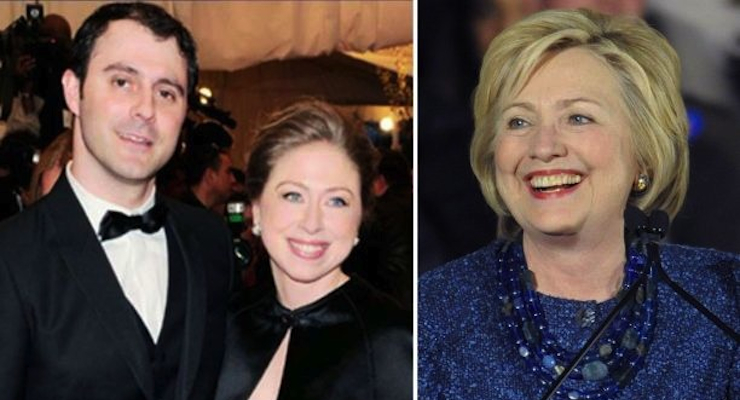

Marc Mezvinsky, left, a partner in a New York hedge fund and the husband of Chelsea Clinton, and Hillary Clinton, right. (Photos: AP)
When driving on treacherous roads, guardrails are useful. If you fall asleep or maybe you’re just a bad driver, guardrails may prevent you from going off a cliff.
Recently, The Wall Street Journal’s Kimberley Strassel used the phrase “no political guardrails” to point out how many of today’s politicians seem to lack any constraints, any safeguards against their use of power. She’s onto something.
“Mr. Obama wants what he wants. If ObamaCare is problematic, he unilaterally alters the law,” Strassel writes. “If the nation won’t support laws to fight climate change, he creates one with regulation. If the Senate won’t confirm his nominees, he declares it in recess and installs them anyway.”
Hillary Clinton does it too. In fact, she promises that once she becomes president, that is how she will govern. If Congress won’t give her gun control laws she wants, she says she’ll unilaterally impose them. Likewise, if Congress rejects her proposed new tax on corporations, “then I will ask the Treasury Department, when I’m there, to use its regulatory authority, if that’s what it takes.”
Whatever it takes. So far, the public doesn’t seem to mind.
Donald Trump’s poll numbers go up after he promises “a total and complete shutdown of Muslims entering the United States,” says that “there’s nobody bigger or better at the military than I am,” says that he’ll make Mexico “pay for that wall” and so on.
Apparently lots of people like the idea of a big, strong mommy or daddy who will take control of life and make everything better. Constitutional restraints? They’re for sissies. We want “leadership” — someone “strong” to run America.
I don’t. I’m an adult. I don’t want to be “led.” I will run my own life. Also, a president doesn’t “run America.” The president presides over just one of three branches of government, and there are strict limits on what he can and should do.
The Constitution was written to limit political authority. Those limits left individual Americans mostly to our own devices, which helped create the freest and most prosperous country in the history of the world.
Now, advocates for both parties are off the rails. Some Republicans demand that the IRS audit the Clinton Foundation. Part of me wishes that it would. I suspect their foundation is largely a scam, a pretend charity that props up the Clintons’ egos and pays Hillary’s political flunkies. Heck, in 2013, it raised $144 million but spent only $8.8 million on charity!
Shut it down! But where are the guardrails here? As Strassel put it, “When did conservatives go from wanting to abolish the IRS to wanting to use it against rivals?”
Today, politicians act as if guardrails are just an annoyance. And they get rewarded for that.
Strassel writes, “The more outrageous Mr. Trump is, the more his numbers soar. The more Mrs. Clinton promises to cram an agenda down the throats of her ‘enemies,’ the more enthusiastic her base. The more unrestrained the idea, the more press coverage; the more ratings soar, the more unrestrained the idea.”
By contrast, humble candidates, quieter ones with modest plans — constitutional ones — get lost in the noise.
So does important government reform. While people argued whether Trump dislikes immigrants, Congress quietly reauthorized the Export-Import Bank, a huge and immoral subsidy for corporations.
A coalition of free-market and anti-corporate-welfare activists fought to get Ex-Im Bank funding eliminated and finally won — but then their work was quietly undone in a massive spending bill.
I once had lunch with Paul Ryan, R-Wis. He talked about reading Ayn Rand, and he emphasized the need to cut government spending. Now he’s the speaker of the House who just oversaw a record-sized spending bill that doles out money to both parties’ pet projects.
Little of that is authorized in the Constitution, which was intended to leave to the people or the states everything not explicitly mentioned in the document.
Today, we get a depressing combination of big, showy violations of constitutional rules — which distract us from the tiny, routine violations of constitutional rules.
Individual freedom, and limited government, is better.






